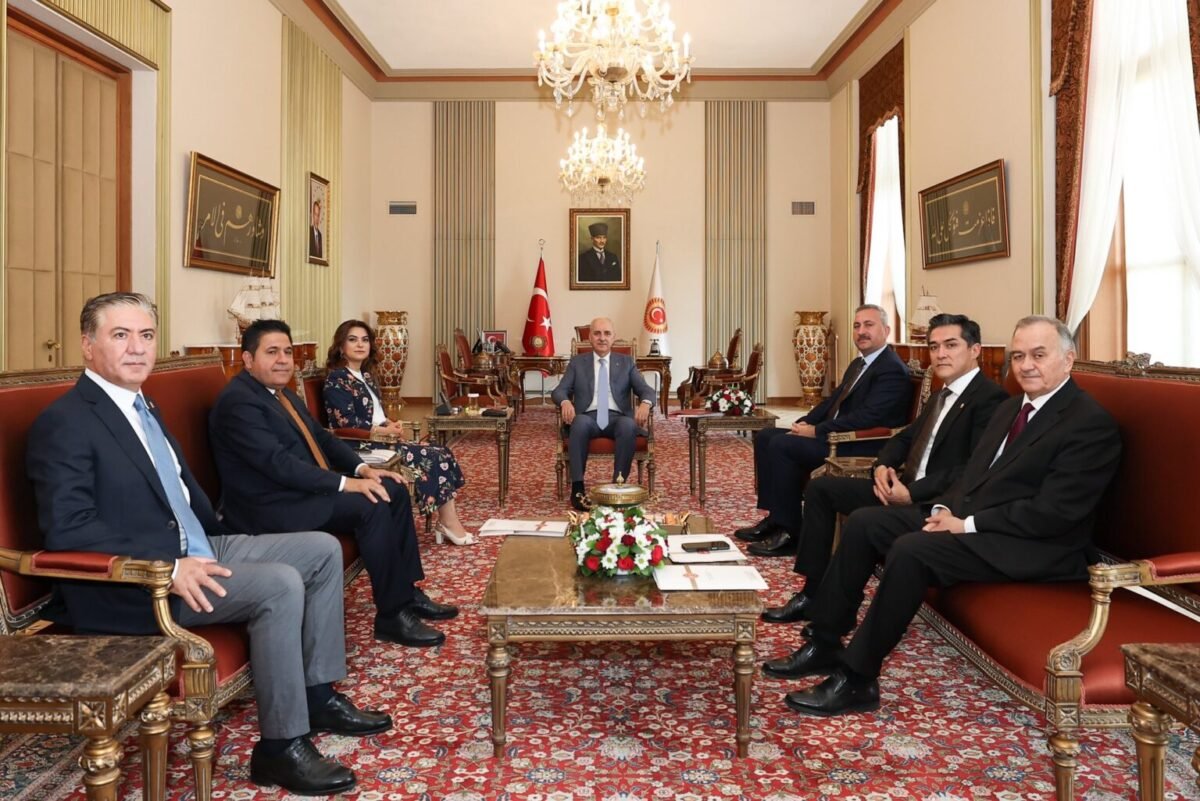Is the Misak-ı Millî Becoming the Blueprint for a Turkish–Kurdish Regional Alliance?

Yesterday, Yeni Yaşam, a leading pro-PKK newspaper, referenced a proposal made by Abdullah Öcalan in 2013 and connected it to the new commission on the Kurdish peace process that convened today. Öcalan’s proposal includes, among other things, a Misak-ı Milli (National Pact) Commission, which he defines as a “pact of joint liberation.” Simultaneously, on August 1st, the Syrian Observatory for Human Rights, which has close connections with the SDF in northeast Syria, reported that SDF leadership is “studying the option of regional repositioning by opening up to Turkey,” including potentially “joining the Misak-ı Milli framework.”
Context: Misak-ı Milli, or the National Pact, was a set of foundational territorial and political principles adopted by the last Ottoman Parliament on January 28, 1920. It later became a guiding doctrine for the Turkish War of Independence and served as the ideological basis for the modern Republic of Turkey’s territorial claims under Mustafa Kemal Atatürk. The pact outlined several key principles, including the assertion that certain areas beyond modern Turkey’s borders, including all of northern Syria and Iraq, were considered indivisible parts of the Turkish homeland.
Analysis: While still at a speculative stage, these reports referencing Misak-ı Milli from media outlets connected to the PKK and SDF are noteworthy. As Turkey and the PKK enter advanced stages of a new peace process—now formalised by a parliamentary commission—the resurfacing of this old document carries strategic weight. The fact that it appears in Yeni Yaşam, one of the central media outlets close to PKK decision-making, and is presented in connection with the new commission is particularly significant.
Reading the headline, one might assume Abdullah Öcalan has issued a new statement: “Abdullah Öcalan’s 8 Proposals to the Commissions.” However, the details reveal these are from his 2013 proposal, now being connected to the newly established commission for the PKK-related Kurdish peace process. Given that the current process is being conducted with considerable opacity—with many deals made behind closed doors—both the Turkish state and Öcalan justify this secrecy by arguing that excessive public disclosure could enable internal or external powers to sabotage the negotiations. This approach may also suggest that elements of these older proposals have become the foundation for new understandings.
The section where Öcalan discusses a commission called Misak-ı Milli is particularly noteworthy. He reinterprets it as a Kurdish-Turkish pact for regional partnership, arguing that Kurds were originally envisioned as co-founders of the new order and that the betrayal of this vision led to today’s crises. According to Öcalan, per the Pact, “The Kurds were not supposed to be divided—but they were.”

The full section merits inclusion here: “Today, changing these borders is no longer easy. But we can turn borders into something beneficial: they can become frontiers of economic unity and brotherhood. The Syrian border could become something like the one in Brussels. A historic alliance is emerging. All Kurds will form a solid alliance with Turkey. The Misak-ı Milli Commission will be tasked with discussing this. Without Turkish-Kurdish unity, no actor can maintain long-term stability in this region. This alliance has existed since the time of the Hittites. Solving the Kurdish issue in Turkey also means resolving it in Iraq, Syria, and even Iran. What would follow is a democratic alliance across the Middle East.”
The dramatic changes since December 2024 with the fall of Assad, combined with earlier major regional geopolitical shifts following October 7, 2023, and the subsequent collapse of the Iranian axis, have made Öcalan’s proposal more realistic and implementable than before. This suggests that the current process extends far beyond the official narrative of achieving a “terror-free Turkey”—what appears to be unfolding is much more comprehensive and transcends Turkey’s borders.
The seismic nature of this process was evident in today’s peace process commission meeting, where Abdülhamit Gül, an AKP member, declared: “If it takes drinking hemlock poison, we will drink it—so long as peace comes to this country. If needed, we all will drink it.”
Connecting this to the earlier report from the Syrian Observatory for Human Rights reveals an intriguing pattern. The SDF is reportedly “studying the option of regional repositioning—including opening up to Turkey and potentially joining the Misak-ı Milli framework—if negotiations with the Damascus government fail and the Autonomous Administration gains no satisfactory political concessions.”
Subsequently, Yeni Yaşam published an interview with SDF commander Mazloum Abdi, who stated: “We have relations with Turkey—direct relations—and our channels of communication are open.” He added, “There is a certain level of dialogue, and we would like to deepen it further.”
While these represent different nodes of information, their convergence from sources close to both the PKK and SDF, two closely aligned organisations, suggests the potential for radical realignment. Turkey appears to be exploring power-sharing arrangements and building a partnership with the Kurds, as its central national security concerns shift from the Kurds to Israeli regional domination. Öcalan, for his part, has also warned against Israeli regional dominance, and his alignment with Ankara’s emerging worldview may be granting him renewed leverage. This suggests the current process is not as one-sided as it may appear, and that a more mutual strategic understanding may be forming behind the scenes, though this warrants deeper analysis.









